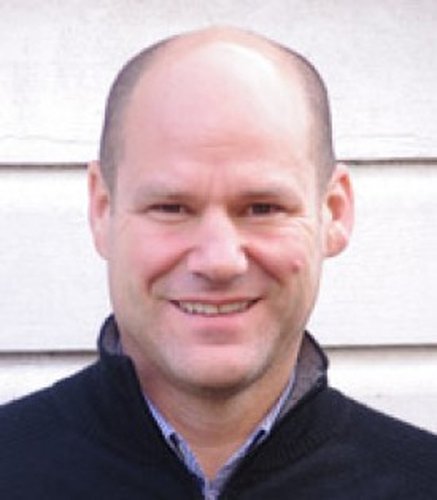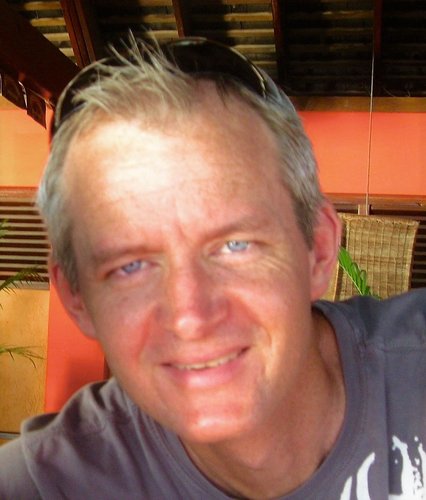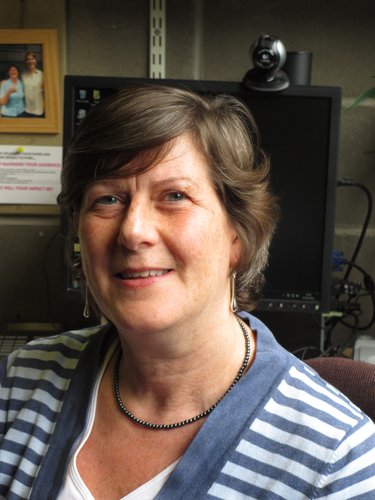Keynote speakers
 Alistair Hobday
Alistair Hobday
Alistair is a Research Director at CSIRO Oceans and Atmosphere and an Adjunct Professor at the University of Tasmania, Australia. He completed an undergraduate degree at Stanford University and a PhD at the Scripps Institution of Oceanography. His research focuses on investigating the impacts of climate extremes, variability and change on marine biodiversity and fishery resources, and developing, prioritising and testing adaptation options to underpin sustainable use and conservation into the future. His projects involve multi-disciplinary teams that seek to support management and policy uptake of research, via co-production with stakeholders. In addition to more than 240 publications, he contributed to the IPCC 4th and 5th assessment Australasia chapters, covering fisheries, oceanic and coastal systems, and is an editor for Fisheries Oceanography, Marine Ecology Progress Series, and Global Change Biology. He is former co-chair of IMBeR´s CLIOTOP (Climate Impacts on Top Ocean Predators) regional programme and is a current Scientific Steering Committee member of IMBeR.
Alistair will be introduced by Kelly Ortega-Cisneros from Rhodes University, South Africa
 Lynne Shannon
Lynne Shannon
Lynne Shannon is a marine researcher at the University of Cape Town in South Africa, undertaking ecological research and modelling to contribute to ecosystem-based management. She has published over 120 peer-reviewed papers. She has constructed trophic models in the Benguela to provide an understanding of structure and functioning and changes in the marine food webs. She explores pragmatic ways in which ecosystem considerations might be incorporated into fisheries management, especially the use of ecological indicators. Lynne co-chairs the international working group “IndiSeas” (www.indiseas.org), evaluating effects of fishing and natural variability on marine ecosystems using suites of ecological, environmental, biodiversity and human dimension indicators in comparative approach.
André Frainer from the Norwegian Institute for Nature Research will introduce Lynne

Eddie Allison
Eddie is a Professor in the College of the Environment at the University of Washington, Seattle, WA, USA. His research centres on the human connection to natural resources. His primary areas of focus are 1) the contribution of fisheries and aquaculture to food and nutrition security and coastal livelihoods, 2) governance of small-scale fisheries and aquaculture production and the human rights of fisherfolk, and 3) the vulnerability and adaptation to climate change of people dependent on marine and freshwater resource.
Carol Robinson, Chair of IMBeR Scientific Steering Committee will introduce Eddie

Ingrid van Putten
Ingrid van Putten is a Research Scientist with CSIRO Oceans and Atmosphere in the ecosystem modelling team and a Senior Adjunct Researcher at the Centre of Marine Socioecology at the University of Tasmania. Her research focuses on using behavioural sciences, in particular behavioural economics, to improve our understanding of the social and economic behaviour of marine resource users (fisheries, aquaculture, recreation, and other marine sectors) and their interactions with the biophysical marine environment. She tries to improve the management and long term viability of coupled social-ecological systems by better understanding what prompts resource user’s behaviour and find tractable ways to influence their behaviour and reduce risks. Ingrid´s work is both theoretical and applied/empirical, making use of both qualitative and quantitative methods, and a combination of analytical and statistical approaches. She uses different modelling tools and approaches (e.g. Bayesian and network analysis) to represent resource user behaviour and interactions at the appropriate level of complexity. A large part of her research consists of working in interdisciplinary teams and connecting the ecological and human dimensions of marine and coastal management.
Ingrid´s talk will be introduced by Katherine Maltby from CEFAS/University of Exeter, UK
 Laurent Bopp
Laurent Bopp
Laurent Bopp is the Research Director at CNRS Laboratoire des Sciences du Climat de l’Environnement (LSCE) at l’Institute Pierre-Simon Laplace in Paris, France. His main research interests focus on the links between marine biogeochemical cycles and climate, and understanding how marine ecosystems and the ocean carbon cycle respond to climate variability and anthropogenically-driven climate change. He develops and uses marine biogeochemical and ecosystem models, coupled to Earth System Models.
Shan Jiang from the State Key Laboratory of Estuarine and Coastal Research (SKLEC) in China will introduce Laurent
 Samiya Selim
Samiya Selim
Dr. Samiya Selim is an Associate Professor and the Director of Center for Sustainable Development at the University of Liberal Arts Bangladesh (ULAB). She specialises in the interdisciplinary areas of socio-ecological systems, sustainability science, climate change adaptation and resilience, and science-policy interface. Currently her work is focused on achieving the Sustainable Development Goals (SDG), ecosystem based adaptation and integrated aquaculture in coastal areas of Bangladesh facing increased salinity and erosion.
In the past 10 years, Samiya has worked in the UK and Bangladesh in the field of environmental conservation, climate change and fisheries. Her previous work includes mobilizing hard-to-reach communities to get involved in environmental activities and to bring about behavioural change to achieve sustainability in daily life. Her work has also utilised historical approaches to identify shifting baselines in fisheries and coastal ecosystems. She recently published the first book on achieving the SDG goals relating to the environment in Bangladesh.
She is a member of the IMBeR Human Dimensions Working Group which focuses on the interactions between human and ocean systems and its goal is to promote an understanding of the multiple feedbacks between human and ocean systems.
Rhoda Fofack-Garcia from France Energies Marines, France will introduce Samiya
 Derek Armitage
Derek Armitage
Derek Armitage is Professor, School of Environment, Resources and Sustainability and co-lead of the Environmental Change and Governance Group at the University of Waterloo (Canada). His research focuses on the human dimensions of environmental change, community-based conservation and the relationship to adaptive and collaborative forms of governance in coastal systems. He has worked on interdisciplinary projects in Canada, southeast Asia and the Caribbean, and has led working groups in several major research partnerships, including the Community Conservation Research Network, the OceanCanada Partnership, and the Partnership for Canada-Caribbean Community Climate Change Adaptation. He is co-editor of 'Governing the Coastal Commons: Communities, Resilience and Transformation' (Routledge).
Derek will be introduced by Zach Koehn from the University of Washington, USA
Carol Robin son
son
Carol Robinson is a Professor of Marine Sciences at the University of East Anglia in the UK and Chair of the Scientific Steering Committee of IMBeR. Her research focuses on the role of marine bacteria, phytoplankton and zooplankton in the global cycling of carbon and oxygen, and how this varies in space and time and with changing environmental conditions such as increasing nutrient supply, temperature and carbon dioxide and decreasing dissolved oxygen. This involves laboratory and field observations, including the use of gliders and time series datasets, remote sensing and numerical models. Carol currently leads two international projects which study the role of marine bacteria and phytoplankton respiration in the cycling and sequestration of carbon, and her team contributes to projects on zooplankton mediated carbon flux in the Southern Ocean and quantifying the capacity for marine carbon storage as recalcitrant dissolved organic carbon and how this might change in a changing environment.
Carol’s presentation will summarise recent key advances in IMBeR science and propose some future directions that will help address the research questions identified in the IMBeR Science Plan as needed to progress towards securing sustainable, productive and healthy oceans.
John Claydon, Executive Officer of IMBeR will introduce Carol
 Eric Galbraith
Eric Galbraith
Eric Galbraith is an ICREA Research Professor, based at the Universitat Autònoma de Barcelona in Spain. He previously worked as a research associate at Princeton University in the USA, and as a professor at McGill University in Canada. His research is broadly interdisciplinary, and is generally concerned with using numerical models and data analysis to better understand the interactions between climate change, human activities and the marine ecosystem. Eric has worked on both past and anticipated climate changes and their links with ocean biogeochemistry, as well general principles of air-sea exchange, nutrient cycling and ecosystem stoichiometry. His current research focuses on the inclusion of fishing activity as an integral component of global marine ecosystem models, to better understand linkages from human wellbeing to biogeochemical cycling, and to inform future projections. He is a founding coordinator of the fisheries and marine ecosystem model intercomparison project (Fish-MIP).
Irene Alabia from Hokkaido University in Japan will introduce Eric before his talk
